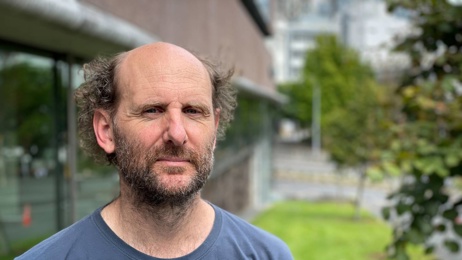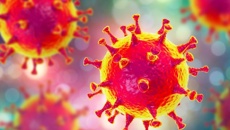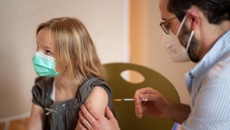COVID LATEST:
* Level 3.2 explained: Can I go to the gym, retail rules of engagement
* Covid-19 experts 'nervous' with decision for Auckland to ease restrictions
* Covid scare at West Auckland daycare after teacher tests positive
* Derek Cheng: Why Jacinda Ardern is easing restrictions as cases rise - again
* Delta outbreak: 1pm media conferences cut back, infection stats dropped
* Kate MacNamara: The suffocating spin of NZ's vaccine taskforce
Fatigued Aucklanders who have endured 11 weeks of lockdown will be given new freedoms next week despite the number of community Covid-19 cases tipped to peak later this month.
The move to ease restrictions has drawn cautious support from some experts, as evidence builds that vaccination levels are helping reduce the need for hospital and intensive care.
"Despite how hard everything feels right now, we are going to be okay," Prime Minister Jacinda Ardern told the country yesterday.
However, others warn that giving people more freedom could still lead to a dramatic rise in cases, and risk overwhelming the health system with desperately sick and dying patients.
On Monday a record number of daily cases - 162 - were reported, taking the overall number in the outbreak to 3510.
Five were in Waikato, one in Northland and the rest in Auckland.
Despite this, Ardern announced Waikato would move to step 2 of level 3 restrictions from 11.59pm tonight, and Auckland - in principle - a week later.
This step would allow retail stores to operate with safe distancing requirements and mask use, public facilities like libraries and museums to reopen, and outdoor gatherings to increase to 25 from 10.
Glenfield Mall owner Dallas Pendergrast told Mike Hosking on Newstalk ZB they didn't need a week to prepare to open and would like to open today.
"We're very disappointed. We've been geared up ever since the beginning ... we know what we're doing, we've got our signage up, we've got sanitisers, QR codes and everything ready to go for a long time.
"We're also faced with our close contact tenants having to wait for heaven's knows how's long."
They had about 15 businesses that couldn't open - hairdressers, a nail bar - and that was also "ridiculous".
"They tell us that cases are going up, vaccinations are coming down, what's going to be different in a week's time?"
She said they were lucky that they hadn't had any businesses go under but they had been supporting their businesses the last few weeks.
As for no vaccine app, "that's quite a difficult one".
They had contact tracing at every entrance and every entrance to every shop, mask wearing would be compulsory but there was nothing else they could do.
As for being busy, she said they were geared up "for a very busy time" as they were primed for Christmas shoppers.
The mall would be decorated in Christmas decorations and "really ready for a big Christmas rush".
Epidemiologist Dr Michael Baker said the easing of restrictions was a "reasonable balance", with the risk of high school students returning this week yet to be known alongside increasing evidence the vaccine keeping cases at a manageable level for the health system.
/cloudfront-ap-southeast-2.images.arcpublishing.com/nzme/MWKUP4K64PTGWERHOA7UEC3JK4.jpg)
Yesterday a record 162 Covid cases were recorded as Aucklanders look ahead to more freedom. Photo / Michael Craig
As of Monday, 53 people were in hospital, with Covid-19 and three were in ICU.
These numbers have remained relatively steady since the outbreak began, despite a dramatic rise in daily case numbers.
This has also accompanied an increasing proportion of those infected being vaccinated, reflecting the overall growing vaccination rates.
As of Monday just over 75 per cent of the eligible population - aged over 12 - had two doses of the Pfizer vaccine, and just over 88 per cent received at least one dose.
Of those infected in this outbreak, the proportion without a single dose has dropped from 82 per cent on September 9 to 72 per cent.
Meanwhile, the hospitalisation rate of all cases has dropped from 9.7 per cent to 7.4 per cent over the same period.
"We are seeing the double benefits of vaccination," Baker said.
"Case numbers are being kept down, along with contact tracing and the alert level system, while hospital rates are also decreasing."
National Hauora Coalition Clinical Director Dr Rawiri Jansen was not so forthcoming about the Government's announcement, however.
"My sense of it is one of impending doom."
The Delta outbreak has been on simmer over the last few weeks, he told TVNZ's Breakfast.
"The pot has come to the boil - and we're going to turn the gas up. And that's really problematic."
Jansen said he was "really disappointed" in the decision and pointed out that we were just weeks away from being in a good position.
He said in about four weeks' time, we would likely see the approval of vaccination for 5 to 11-year-olds - another tool that would help stamp out the outbreak - as well as having the Māori vaccination rates up to a place that meant Māori communities were safe.
"It feels like we are crossing a raging river when the correct answer is to wait until the flood has settled down [so] we can cross safely.
"I'm really disappointed."
Jansen said he feels the Government has stepped away from the scientific advice on two occasions now, when making their decisions.
Baker agreed, saying the traffic light system announced by Prime Minister Jacinda Ardern was different from what was advised to the Government.
"There's been very little consultation before the change was made and yes, I agree with Rawiri, a lot of this is pressure from a number of business interests."
Baker said he thought this next change, however, was manageable. But he was worried about younger pupils going back to school before being vaccinated.
He did not support a drop further in the alert system to alert level 3 phase 3.
"I think that would be a real disaster."
Jansen supported giving Māori vaccination data to Māori health providers in a bid to get more people vaccinated.
That was only because we are in a health emergency, he said.
Mainstream health providers were simply not reaching Māori fast enough and that giving that data to Māori health providers would be the better move.
Low vaccination rates among Māori were the result of a number of factors - one of them being a distrust of the health system because of previous experience.
Ardern said behind the Waikato decision was the fact all cases were linked, and increasingly-high vaccination rates.
For Auckland, Ardern said the move to step 2 next week would remove "some of the pressure and fatigue that we know exists in Auckland".
Ardern said there were now more tools than there had been when the pandemic started.
High vaccination levels gave the Government the ability to ease restrictions safely and carefully, she said.
The growth in cases was not unexpected, but hospitalisations were "very manageable" and that was the impact vaccinations were having.
Prior to the announcement director-general of health Dr Ashley Bloomfield revealed the latest modelling projections on Covid-19 case numbers and hospitalisations, and how they were being affected by restrictions and vaccination rates.
It showed in three weeks' time, vaccination coverage in Auckland could be high enough to keep the outbreak from growing anymore, with the number of daily cases peaking at about 200 a day.
By the end of November, 150 people a week would need hospital care, 11 of whom would need ICU care, and Covid-19 patients would take up 106 hospital beds, including 20 ICU beds.
The current hospital capacity should be able to cope with this, with most of the active cases in home isolation.
Bloomfield said current and projected statistics reflected the fact more people were being vaccinated, and that those who were vaccinated and infected were less likely to need hospital care.
That current rate could be even lower, Bloomfield said, as many of those in hospital were there for other illnesses.
However, Bloomfield said the young median age in the outbreak, 30, was also likely playing a role. This indicated the alert levels, keeping most vulnerable people at home, was working along with much higher vaccination rates among older prioritised groups.
Microbiologist Dr Siouxsie Wiles said she was "nervous" about the alert level shift, with the full impact of senior students returning to school on transmission yet to be seen.
"Cases are still rising, and while we are being reassured that this is not going to overwhelm our health system, we need to remember that Covid-19 is a serious disease and many unvaccinated people who catch the virus will develop Long Covid."
Covid modeller Professor Michael Plank said while vaccination weakened the link between cases, hospitalisations and deaths, it didn't remove it altogether.
There also needed to be a greater focus on equity, he said.
"Māori now account for 40-50 per cent of cases in the current outbreak and will bear the brunt of any increase in community transmission."
National leader Judith Collins said the announcement raised more questions than answers, and asked why vaccine certificates were not being used yet.
"If they were ready now, vaccinated Aucklanders could have much greater freedom and could even leave the Auckland prison.
"The fact they are not ready is a disgrace and emblematic of a Government that simply hasn't done the work."
Act Party leader David Seymour said with Auckland having the highest vaccination rates in the country it should move to alert level 3 step 2 today, with a timeframe for step 3.
"Aucklanders also have the greatest need, with businesses going under, the mood depressed, and people increasingly desperate after three months of lockdown."
Meanwhile, Auckland Mayor Phil Goff said the move balanced containing the virus spread while maintaining public compliance and the impact of lockdowns on jobs, businesses and overall wellbeing.
By next Tuesday, over 90 per cent of eligible people in all three of Auckland's district health boards would likely have had their first vaccination, with over 80 per cent fully vaccinated, Goff said.
Take your Radio, Podcasts and Music with you









